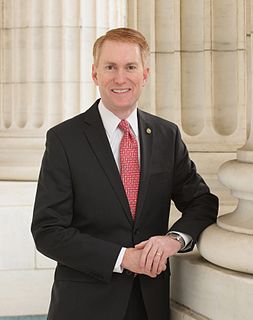A Quote by Tulsi Gabbard
As was true in Iraq and Libya, the United States has no credible government or leader able to bring order, security, and freedom to the people of Syria if Assad is overthrown.
Related Quotes
Currently, the United States has troops in dozens of countries and is actively fighting in Iraq, Syria, Libya, and Yemen (with the occasional drone strike in Pakistan). In addition, the United States is pledged to defend 28 countries in NATO. It is unwise to expand the monetary and military obligations of the United States given the burden of our $20 trillion debt.
A lot of the issue that is happening in Syria is Assad is still there. And after years now, the administration, of saying Assad has to go, the pressure is not being applied to Russia, to Iran - the folks that are propping up Assad - and Assad himself to be able to actually be removed there and to transition to another leader.
I think most of the Washington foreign policy establishment exists in a fantasy world when it comes to Syria. They fundamentally don't understand that Russia and Iran, from the beginning, had much more at stake in Syria than the United States did. Russia and Iran were going to do everything possible in order to keep Bashar al-Assad in power.
Our process inside the United States government has gotten much better at making sure we touch all possible source of information about a refugee. The interview process has gotten more robust, so we've gotten our act together in that respect. The challenge remains, especially with respect to folks coming from Syria, we're unlikely to have anything in our holdings. That is, with people coming from Iraq, the United States government was there for a very long period of time. We had biometrics, we had source information. We're unlikely to have that kind of picture about someone coming from Syria.
I mean, all of these things that [Bashar Assad] has done, there's no way even if President Obama wanted to just play along that you could actually achieve peace, because there are 65 million Sunni in between Baghdad and the border of Turkey, Syria, and Iraq, who will never, ever again accept Assad as a member - as a legitimate leader.
Continuous wars - which we have now had since 2001 - starting with Afghanistan, continuing on to Iraq. And even since Iraq, it's been more or less continuous. The appalling war in Libya, which has wrecked that country and wrecked that part of the world, and which isn't over by any means. The indirect Western intervention in Syria, which has created new monsters. These are policies, which if carried out by any individual government, would be considered extremist. Now, they're being carried out collectively by the United States, backed by some of the countries of the European Union.
It was not the United States who invaded Kuwait; it was Iraq. It was not the United States that went to war with Iran; it was Iraq. It was not the United States that fired chemical weapons at Iran; it was Iraq. And it was not the United States that murdered innocent Iraqi citizens with chemical weapons; it was Iraq.
































